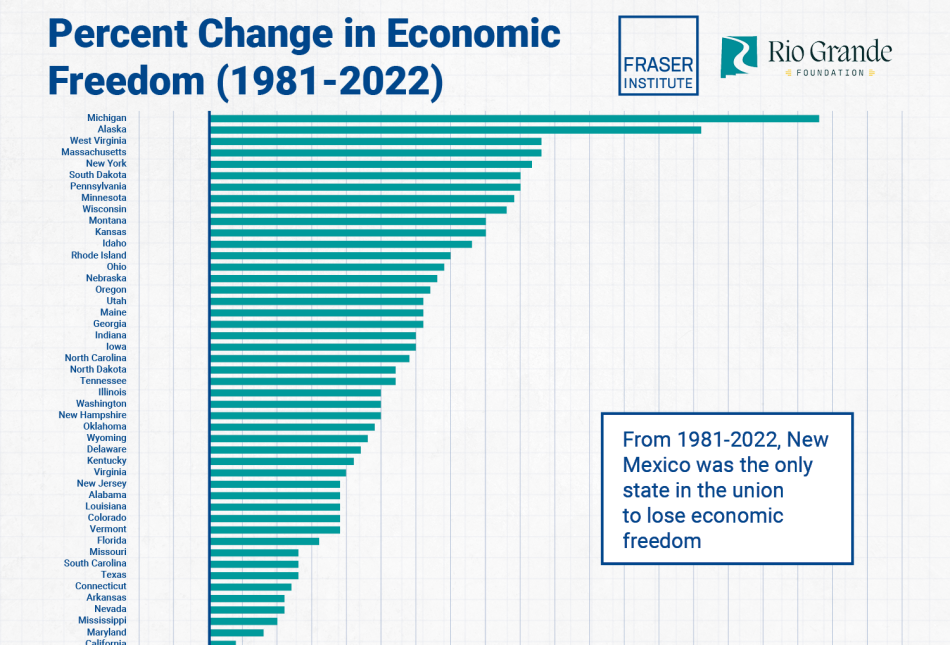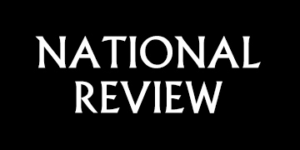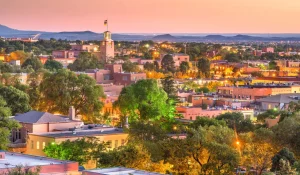If you’ve ever spent time in New Mexico, you know that it is a beautiful state. With remarkable vistas, rich culture, abundant outdoor attractions, and wonderful climate, the state has earned its nickname “The Land of Enchantment.”
Even more enchanting, New Mexico is in the middle of an oil and gas boom. The state has been an oil and gas producer for decades, but thanks to major shale finds, New Mexico now churns out 2 million barrels of oil every day. This is more than 15 percent of all U.S. production and enough to make it the second-biggest oil producing state in the nation after Texas. You’d think New Mexicans would be riding high these days.
Nothing could be further from the truth.
For decades the American Southwest has been the fastest growing area in the nation. You can credit the weather, wide open spaces, or opportunity for outdoor activities. But the fact that Southwestern states generally permit their citizens a great deal of economic freedom almost certainly helps.
Unfortunately for New Mexicans, their state bucks this trend. Over the last decade, the state ranked 47th in employment growth and 36th in real GDP growth. It has the third-highest poverty rate, and it has more children on federal food assistance than any other state. Over this period New Mexico’s population edged up just 1 percent while neighboring states grew by an average of 12 percent. State employment also grew 1 percent while neighboring state employment growth averaged 19 percent.
Why would a state with such dynamic neighbors be so economically troubled? With cooler summers than Arizona or Texas and warmer winters than Colorado — with skiing, golf, culture, arts, and the best green chili in the nation — the state has everything it needs to take off. Yet it is stuck in second gear.
In our new report published by the Rio Grande Foundation and the Fraser Institute, we point to the state’s long history of limited economic freedom. Unless the state’s leaders change course, New Mexico’s negative trends show every sign of continuing or even worsening in the years to come.
People are more economically free when they are allowed to make more of their own economic choices. But New Mexico’s high spending, steep taxes, and burdensome regulations mean it ranks 47th out of the 50 states, well behind each of its closest neighbors.
The Fraser Institute in Canada began measuring economic freedom nearly three decades ago, first at the national level and then at the state and provincial level. This data has been used in over a thousand peer-reviewed studies assessing the effects of economic freedom on wellbeing. And the evidence is overwhelming that economically freer people tend to be more prosperous people.
Economically free places attract people, entrepreneurship, and growth. They tend to experience lower levels of poverty, homelessness, and food insecurity. People in economically free places are more tolerant of others, philanthropic, and satisfied with their lives. They are even less likely to recommit crime.
Yet as this evidence has accumulated, New Mexico’s policymakers have moved to further restrict the economic freedom of New Mexicans. The state is the only one in the country to have reduced the economic freedom of its citizens over the four decades for which we have data.
In recent years New Mexico has had budget surpluses of more than $3 billion annually. These are big numbers in a state where rapid spending growth has led to an annual general fund budget of $10.8 billion. In the last five years, the budget has grown by 27 percent in inflation-adjusted terms while the economy has grown by just 12 percent. New Mexico has also accumulated a $61 billion fund for future government spending.
What can be done? New Mexicans themselves hold the key. When they head to the polls, they should question why the state’s leaders have made the government the dominant force in New Mexico’s economy.
They should ask why the state’s top marginal income tax rate is nearly twice that of its neighbors or why its labor regulations are the second most burdensome in the country. They should ask that the state’s low-income occupations be relieved of especially heavy licensing requirements. For example, it takes 1,600 hours of classes to get a cosmetology license, and the average program costs over $16,000.
Reams of national and international data highlight the power and importance of increasing and defending economic freedom. New Mexico offers a cautionary tale to those who believe policymakers can tax, spend, and regulate their states to prosperity.
The evidence suggests that if allowed to make more of their own economic choices, New Mexicans would build a flourishing economy every bit as enchanting as everything else the state has to offer.
Matthew Mitchell is a senior fellow in the Center for Human Freedom at the Fraser Institute in Canada. He lives in northern New Mexico. Paul Gessing is President of the Rio Grande Foundation in Albuquerque.



